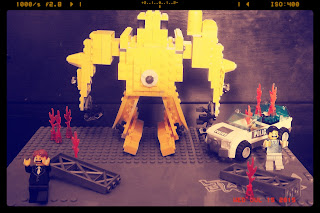Defining Intelligence Through Moral Choices
 |
| What can artificial intelligence reveal about our past? |
As the robot begins to develop awareness, it is always confronted with a moral conundrum. It is not the AI's witty dialogue or charming personality that reveals it's intelligence. Instead the "innocent" robot must wrestle with a choice between good and evil. We may not think of intelligence this way, but it could be defined as a moral awareness.
This is the same story about mankind found in Genesis chapter 3. Adam was innocent, or unfamiliar with the consequences of a contradiction to God's nature.When he ate from the tree of the knowledge of good and evil, his eyes were opened. That's the moment good AI stories recreate. An innocent or AI robot becomes aware of moral choice and the consequences it brings.
It's the same choice we face every day, which may be why science fiction keeps coming back to it. There is an assumption today that intelligence means smarter and better, that we are more intelligent today than we were yesterday. But the reality is we are no better off (probably worse) and intelligence is not on a sliding scale.
Mankind is unlike animals or machines in that we understand our moral choices. And the more we realize our nature is continually set at odds with God's character, the more we realize our need of a savior. Our choices alienate us from God so greatly that we are condemned to an eternity in hell. Jesus alone provides the means to fulfill God's wrath through the greatest act of love.
.jpg)




Comments
Post a Comment